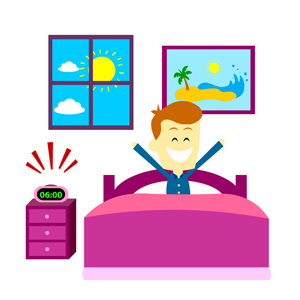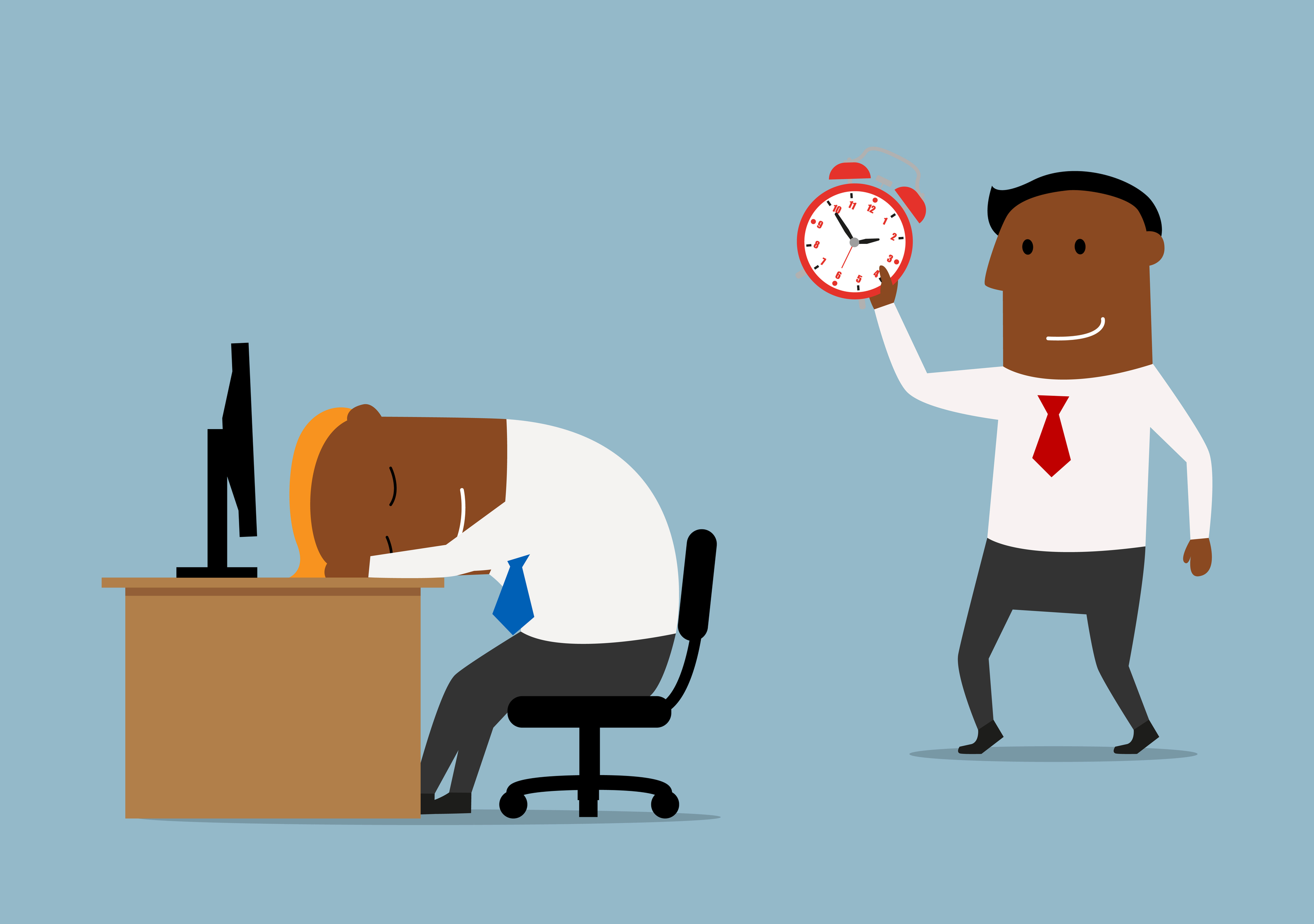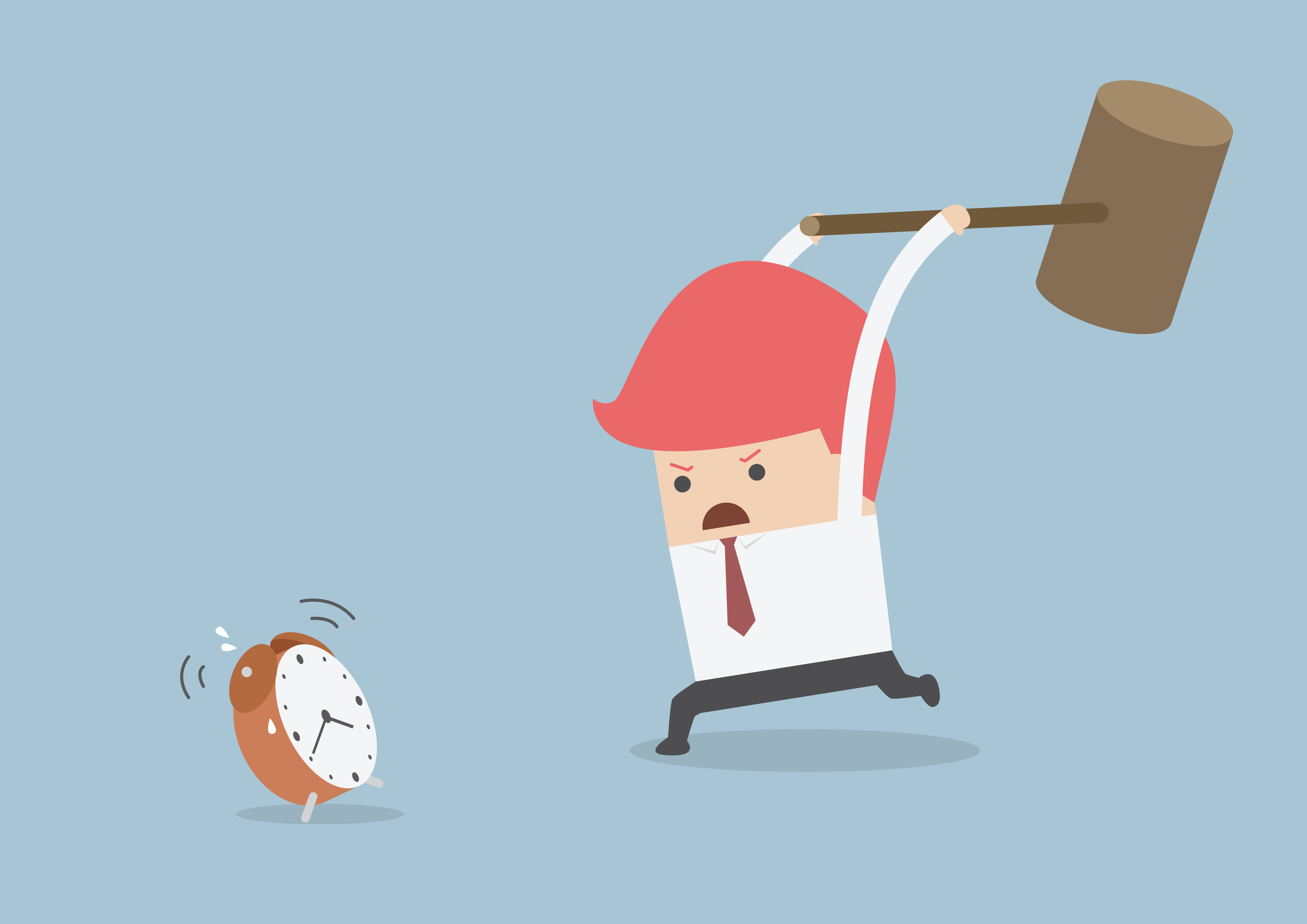 A lot of the tips in our previous article about boosting productivity at work rely upon you having enough energy and motivation to actually do them, which isn’t all too easy if you’re not a morning person. Even if you’re a total night owl and you operate best in the late hours of the night, it is still completely possible to train yourself to be an early riser. You can teach yourself to not only get out of bed earlier, but also to be a very functional and productive morning person; not just stumbling around the house at 6 a.m. in a sleepy fog you can’t shake off. Some of these tips were touched upon in the previous article—now we’re showing you how to tie it all together.
A lot of the tips in our previous article about boosting productivity at work rely upon you having enough energy and motivation to actually do them, which isn’t all too easy if you’re not a morning person. Even if you’re a total night owl and you operate best in the late hours of the night, it is still completely possible to train yourself to be an early riser. You can teach yourself to not only get out of bed earlier, but also to be a very functional and productive morning person; not just stumbling around the house at 6 a.m. in a sleepy fog you can’t shake off. Some of these tips were touched upon in the previous article—now we’re showing you how to tie it all together.
Being a morning person may actually benefit our health, as well as our productivity. A study conducted by Dr. Joerg Huber of Roehampton University questioned adults about their sleep habits and found that people who stayed under the covers on weekdays until 9:00 a.m. are more likely to be stressed, depressed and overweight than people who get up at 7:00 a.m. So, if being a morning person makes your boss happier that you’re not staggering through the door late and grumpy, and it also has multiple health benefits, why wouldn’t you want to be an early riser?
1. Keep a Consistent Sleep Schedule
The most important thing you can do to establish good sleep habits is getting up and going to bed around the same time every day—including weekends. We mentioned this in our previous article, but it is truly one of the most crucial factors of being a morning person, as well as just making sure you get the best sleep you can. Keeping a consistent sleep schedule helps ensure you are getting quality, restful sleep and not disrupting your body’s rhythms.
It is a common belief that we can “make up” for lost sleep by going to bed extra early the next night, but this is not true. It is also not true that as long as you get the same number of hours of sleep, it makes no difference. In reality, even if you’re only altering your sleep schedule by an hour or two, you won’t be as energised and refreshed as you would be if you stuck to your schedule. The ability of our natural body clocks to regulate healthy sleep patterns is dependent on consistency—even at the weekends. In fact, late-night weekends are more likely to cause insomnia during the week.
A consistent sleep schedule is the best reinforcement for our internal clocks. It teaches the brain when to release sleeping hormones and waking hormones (and, more critically, when not to release them). If you need to make your bedtime a little earlier in order to set your optimum sleep schedule, shift it in 15-minute increments. Adjustments any larger than that will just throw off your rhythm, meaning you won’t create actual lasting change.
2. Protein in the Morning, Dairy in the Evening
Have you ever noticed a correlation between what you’ve consumed during the day and how you sleep? Protein is great to keep you going during the daytime, but it’s difficult for the body to digest so if you eat it at night, the digestion can disrupt your sleep cycle. On the other hand, dairy is rich in tryptophan—that stuff in turkey that everyone says makes you sleepy.
Other things you may not know: dark chocolate is a common post-dinner treat, but it actually has quite a high caffeine content. Also, there is also a lot of evidence showing that alcohol does not improve sleep quality. Evidence shows that alcohol impairs REM sleep, so the actual quality of sleep is drastically reduced, even though it may not seem that way as we might tend to asleep more easily than normal after consuming alcohol.
Try keeping a diary or log of your daily consumption and how you slept that night. See if you can notice any trends, then work on fixing the issues
3. Evening Routine
 As mentioned before, our bodies thrive on regularity. An evening routine in conjunction with a consistent sleep schedule helps our bodies know what to expect on a daily basis. If you maintain a regular routine in the evening, you can train your brain to learn when to start calming down because it’s nearly time to fall asleep.
As mentioned before, our bodies thrive on regularity. An evening routine in conjunction with a consistent sleep schedule helps our bodies know what to expect on a daily basis. If you maintain a regular routine in the evening, you can train your brain to learn when to start calming down because it’s nearly time to fall asleep.
Reading before bed is a great way to chill out; but make sure you’re reading an actual book, not an e-reader with blue light. Studies have shown that night-time exposure to blue light can throw circadian rhythms out of whack. A cup of decaffeinated tea is also a good way to relax.
4. Reduce Your Evening Commitments
In order to establish the aforementioned evening routine, you should block off at least an hour before bed to wind down. It is difficult to balance the right work-life equilibrium. As we get further into our careers, our spare time seems to diminish. Often, the key to balancing our wellbeing and personal/professional responsibilities begins with saying no to some invitations. Don’t over-commit yourself to too many plans, and make sure you have that pre-bedtime relaxation hour.
5. Use Your Hour to Prepare
If you’re unsure of what to do with your technology-free hour before bed, why not use it to prepare for the morning? Shortening your morning to-do list—by doing things like preparing your lunch, setting your coffee maker’s automatic timer or packing your gym bag—can help streamline your morning routine and make it easier to roll out of bed. Rushing around puts you in a stressful mind set for the day. If you aren’t as rushed in the mornings, you are able to enjoy them more and be more at ease for the start of the work day.
6. Choose the Right Alarm
It’s shocking how much of an impact your alarm tone has on your mood. If the alarm is sudden and strident, you are likely to be more uptight for the rest of the day than you would be with a soothing alarm tone. Calming, tranquil sounds make for a gentler transition into daytime.
 Try experimenting with different alarm options. If you use your phone as your alarm but none of the given tones are quite what you want, there are numerous different apps you can download. Lots of these apps have alarms that wake you gradually with pleasant, relaxing sounds. If you think the tones are too soft and you fear they may lull you back to sleep, then download one of the apps that monitors your sleep levels. By monitoring your habits and movements, the apps know when you’re at your lightest point of sleep and when is the best time to wake you. You can usually customise the settings, so if you haven’t woken up after a certain amount of time then the alarm will change or wake you more powerfully and abruptly.
Try experimenting with different alarm options. If you use your phone as your alarm but none of the given tones are quite what you want, there are numerous different apps you can download. Lots of these apps have alarms that wake you gradually with pleasant, relaxing sounds. If you think the tones are too soft and you fear they may lull you back to sleep, then download one of the apps that monitors your sleep levels. By monitoring your habits and movements, the apps know when you’re at your lightest point of sleep and when is the best time to wake you. You can usually customise the settings, so if you haven’t woken up after a certain amount of time then the alarm will change or wake you more powerfully and abruptly.
If you really need something to drag you out of bed in the morning, there are all kinds of ingeniously, annoyingly effective alarm clocks that will most certainly get your butt out of bed.
7. Splash Water on Your Face
Simple, yet effective. If cold water is just too much to handle first thing in the morning, even warm water will help. Little actions like this can majorly boost your level of wakeup motivation.
8. Force Yourself
Waking up within minutes of your alarm can be infuriating. It is so tempting to close your eyes again and savour those last few minutes, but that makes it harder to wake up and start your day. When you wake up spontaneously, it is usually because you are in a light stage of sleep. Going back to sleep puts you in danger of falling into a deeper sleep stage, meaning you will definitely have a more difficult time waking up again.
 9. Positive Vibes
9. Positive Vibes
Your first thoughts set your mood of the day. Make these thoughts positive ones—don’t wake up and groan about all of the things you don’t want to do today.
Instead, think forward to the best parts of the day. Set a positive tone at the start of the morning, and it will motivate you to see it through.
10. Drink a Full Glass of Water
Few people think about this, but it is actually of vital importance. After going for eight hours (or however long you sleep) without water, your body is mildly dehydrated. Dehydration causes fatigue. A lot of the time, when we feel tired, it is actually just our bodies needing more water; not more sleep.
11. Don’t Underestimate the Importance of Light
Humans are hardwired to be more alert when it’s light and to get sleepy when it’s dark. Unfortunately, the planet’s rotations aren’t always in line with our sleep schedules. You can’t base your schedule around sunrise and sunset—especially in England in the middle of winter, as this would mean sleeping past 8:00 a.m. and being back in bed before 4:00 p.m. This means you’ll need the use of artificial light. When you wake up, turn on the lights in every room you’ll be using. A good mindfulness activity is to watch the sunrise each morning if you can, even if it is a couple of hours after you get up. This will calm and centre you, as well as help you to be more awake.
If you’re currently a late riser, it might be tough to adjust at first. But, if you bite the bullet and keep at it, you’ll gradually learn to become a morning person. As Theodore Roosevelt said, “With self-discipline most anything is possible.” So go on, seize the day!

